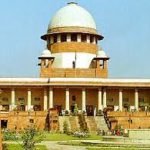The case involves the State of Uttar Pradesh challenging two ex parte arbitration awards obtained by R.K. Pandey. The dispute originated from Mr. Pandey’s employment at a hospital that was transferred from the Municipal Board to the State Government, with the core issue revolving around his retirement age and subsequent attempts to enforce alleged arbitration awards related to his claims. The Supreme Court ultimately set aside the awards, finding they were null and void due to a lack of subject matter jurisdiction, primarily based on the non-existence and lack of authenticity of the purported arbitration agreement Mr. Pandey relied upon. The court emphasized that unilateral appointment of arbitrators and awards obtained through such means were invalid, particularly when the foundation of the arbitration, the agreement itself, was not proven to exist.
Constitution of India, Article 136 – Civil Procedure Code, 1908, Section 47 – Arbitration and Conciliation Act, 1996, Section 43 – Limitation Act, 963, Section 3 – Arbitration award – Execution proceedings – Challenge as to – So-called arbitration agreement is nowhere available on the records of either the Municipal Corporation or the State of Uttar Pradesh – Respondent No. 1, did not file the original agreement since he was not in possession of the same, nor is he a signatory and party to the arbitration agreement – An arbitration agreement is sine qua non for arbitration proceedings, as arbitration fundamentally relies on the principle of party autonomy; – the right of parties to choose arbitration as an alternative to court adjudication – In this sense, ‘existence’ of the arbitration agreement is a prerequisite for an award to be enforceable in the eyes of law – There is no evidence to show the existence of the arbitration agreement, except a piece of paper, which is not even a certified copy or an authenticated copy of the official records – How and from where Respondent No. 1 got a copy of the agreement, and that too nearly 10 years after his retirement and filing of a writ petition remains unknown – Respondent No. 1 himself filed the writ petition in 1997 concerning the same dispute – The writ petition had remained pending till 22.04.2009, when it was withdrawn – It is during the pendency of the petition, that the steps for initiation of arbitration were taken on 11.01.2008 by Respondent No.1 by filing a suit for reference in terms of Section 11 of the A&C Act – However, the petition was later withdrawn without any decision on merits with the two sole arbitrators appointed by Respondent No. 1, suo motu taking up the arbitration proceedings and pronouncing the two awards notwithstanding that the claims made by Respondent No. 1 were ex-facie and clearly barred by limitation as per Section 3 of the Limitation Act 1963 read with Section 43 of the A&C Act, they have been allowed – It is apparent that the arbitration proceedings were a mere sham and a fraud played by Respondent No.1 by self-appointing/nominating arbitrators, who have passed ex-parte and invalid awards – Two ex parte Awards dated 15.02.2008 and 25.06.2008 shall be treated as null and void and non-enforceable in law – Resultantly, the judgment passed, and the subject matter of the appeal shall be treated as set aside – The execution proceedings shall stand dismissed.
(Para 20 to 25)
State Of Uttar Pradesh V. R.K Pandey
Supreme Court: 2025 INSC 48: (DoJ 09-01-2025)






